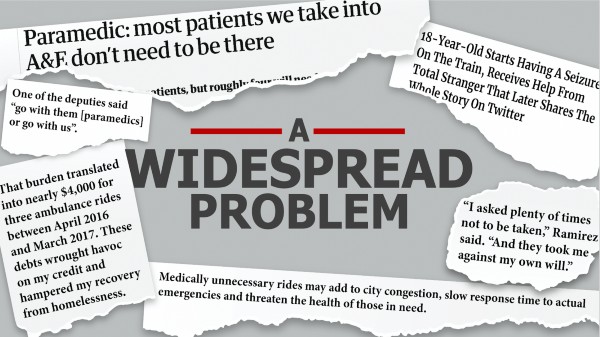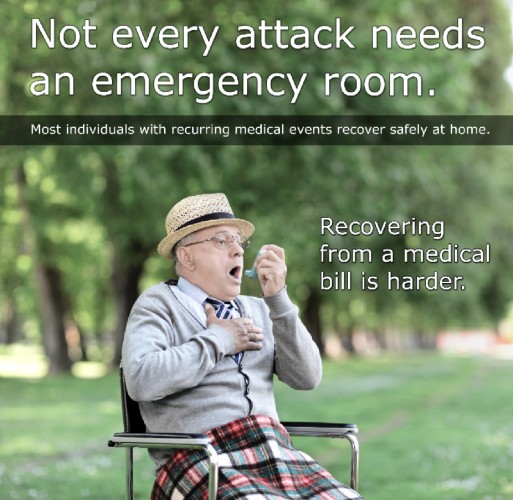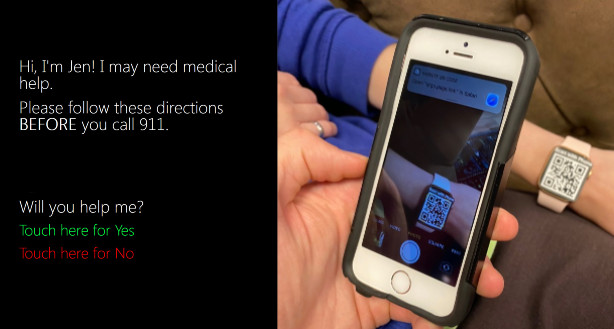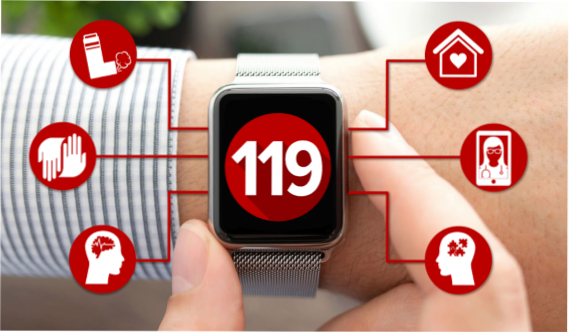
For those who need personalized medical care, we provide a communication tool to guide others through the appropriate response in an emergency situation.
Meet Jen, our founder and inspiration.
Jen, like millions of other Americans, deals with chronic health issues.
If you and Jen were together in the same space right now, and she were to fall to the floor, what would you do?

At times, Jen and others like her may experience unexpected events like fainting, seizures, and allergic reactions, which leave them needing assistance... Good Samaritans who want to help usually only think to call 911. This action, while made with the best intentions, can create significant medical expenses that are unnecessary and out of Jen's control. In 2015, Jen had 15 unwanted 911 calls in three weeks. Jen realized that what she was doing wasn’t sustainable. Since she was a biomedical engineering student, she started to build a solution to her problems on paper. In her final year of classes, Jen didn't have a single 911 call that she didn't ask for. She recognized that this problem needed a bigger solution than just a checklist on a piece of paper, and 119 was born. She created 119 to be the tool she and many others like her need to thrive personally and financially.


119 is a patent pending mobile, wearable system; the next generation of the outdated medical ID bracelet that can speak to bystanders for a user when they can’t speak and guide anyone through giving the right care at the right time for that individual.
Quick Actions allow for pre-set messaging/communication with emergency contacts, functioning when a user is aware a medical event is starting (like a seizure).


Emergency Planner interacts with nearby bystanders or first responders when the user is incapacitated. The bystander will be prompted to answer a series of questions that determines whether a call needs made to an emergency contact or emergency services, based on the user’s preference.
119 is structured in an efficient way to share the right medical information for a user at the right time, to the right people, in a concise and easy-to-understand method.
During a medical event, a user may be unable to manually send a message/call themselves. 119 eliminates this problem by allowing its users to store emergency contact information and pre-saved texts within the app. This way, during a medical event, help is just a few simple taps away from the user.
The Emergency Planner feature relies on bystander/first responder interaction, when the user is incapacitated. An alert from the user’s device will grab a bystander’s attention; this alert will direct the bystander to scan a personalized QR code and fill out a questionnaire about the user’s condition. How the bystander responds to the questionnaire will determine the next course of action.
119 offers a personalized experience by allowing users to input custom information in both the Quick Actions and Emergency Planner components of the app.
Unlike most of its competitors, 119 isn’t seeking 911 for all medical experiences. It is offering a variety of different elements at an overall lower cost to ensure the user’s desired medical outcome.
The Emergency Planner has an alarm feature built into it. If the user leaves the Planner open and does not interact, 119 assumes that a medical event has occurred, resulting in the alarm’s activation. This alarm is loud and is telling its surroundings that the user needs help.